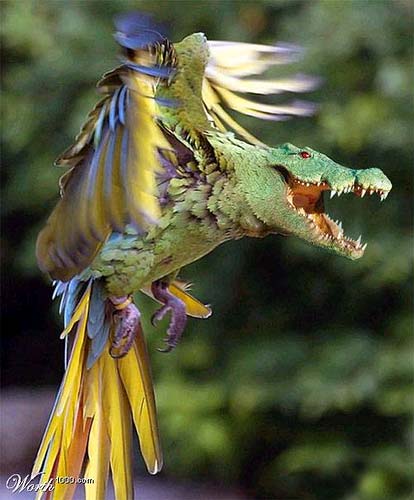US Approves Animal Clones as Food
By Richard Black | Jan 18, 2008

The US government has given the green light to the production and marketing of foods derived from cloned animals.
After six years of study, the Food and Drug Administration (FDA) ruled that meat and milk from cloned pigs, cattle and goats and their offspring is safe.
Lack of data meant the agency could not reach a decision on sheep products.
The FDA does not expect to see a lot of products from cloned animals being sold now, because of cost. It expects clones would first be used for breeding.
The agency released almost identical draft conclusions in December 2006. Since then, new scientific information has strengthened its central view.
“After reviewing additional data and the public comments in the intervening year since the release of our draft documents on cloning, we conclude that meat and milk from cattle, swine, and goat clones are as safe as the food we eat every day,” said Stephen Sundlof, director of the FDA’s Center for Food Safety and Applied Nutrition.
The FDA will not require food derived from cloned animals to be labelled as such.
Low confidence
The agency was criticised by activist groups and by US politicians who were not convinced that enough scientific data was available to justify a decision.
“The FDA has acted recklessly, and I am profoundly disappointed in their rush to approve cloned foods,” said Maryland Senator Barbara Mikulski, co-sponsor of a bill amendment passed by the US Senate which asked the FDA not to rule until further research was available.
“Just because something was created in a lab, doesn’t mean we should have to eat it.”
Her criticisms were echoed by Andrew Kimbrell of the Center for Food Safety, a prominent US pressure group.
“The FDA’s bull-headed action disregards the will of the public and the Senate and opens a literal Pandora’s Box,” he said.
“The FDA based their decision on an incomplete and flawed review that relies on studies supplied by cloning companies that want to force cloning technology on American consumers.”
A survey in 2005 by the Pew Charitable Trusts found that two-thirds of US consumers were “uncomfortable” with animal cloning; nearly half believed food from clones would be unsafe to eat.
Some US food companies have indicated they do not plan to stock products derived from cloned animals.
But Smithfields, which claims to be the biggest producer of pigs and pork products in the country, left the door open to a change of tack, saying it would “continue to monitor further scientific research on this technology” and was committed to improving its products “through careful selective breeding and genetic research”.
Breeders themselves expressed their approval.
“The biotechnology industry applauds the FDA for its comprehensive scientific review of this new assisted reproductive technology,” said Jim Greenwood, president and CEO of the Biotechnology Industry Organization (Bio), which represents companies and institutions in the biotech field.
“Cloning… can effectively help livestock producers deliver what consumers want: high-quality, safe, abundant and nutritious foods in a consistent manner.”
Delayed action
US authorities do not expect to see a wave of products derived from cloned animals on the shelves immediately.
Creating a clone is far more expensive than breeding animals conventionally. The US Department of Agriculture (USDA) believes it is more likely that companies will produce clones with “desirable” traits, breed them, and bring products from the offspring into the food chain.
The USDA is asking companies not to market products immediately, but to continue observing the moratorium they agreed to in 2001 when the FDA began its deliberations.
“USDA encourages the cloning industry continue its voluntary moratorium for a sufficient period of time to prepare so that a smooth and seamless transition into the marketplace can occur,” it said in a statement.
The US developments will be watched closely in Europe, where evaulation of cloned animals is at an earlier stage.
Last week the European Food Safety Authority (Efsa) initiated a public consultation on its draft guidance.
The draft concluded, among other things, that:
* foods from cloned pigs and cattle are essentially identical to those from conventionally bred animals
* animal cloning is unlikely to have environmental impacts
* there are health and welfare issues, but these are likely to diminish as technology progresses
The EU has indicated that if products from cloned animals were approved, they would have to be labelled.
This contrasts directly with the US position, opening up the possibility of trade disputes similar to the lengthy and costly row between the EU and US over genetically modified foods.
Richard.Black-INTERNET@bbc.co.uk















